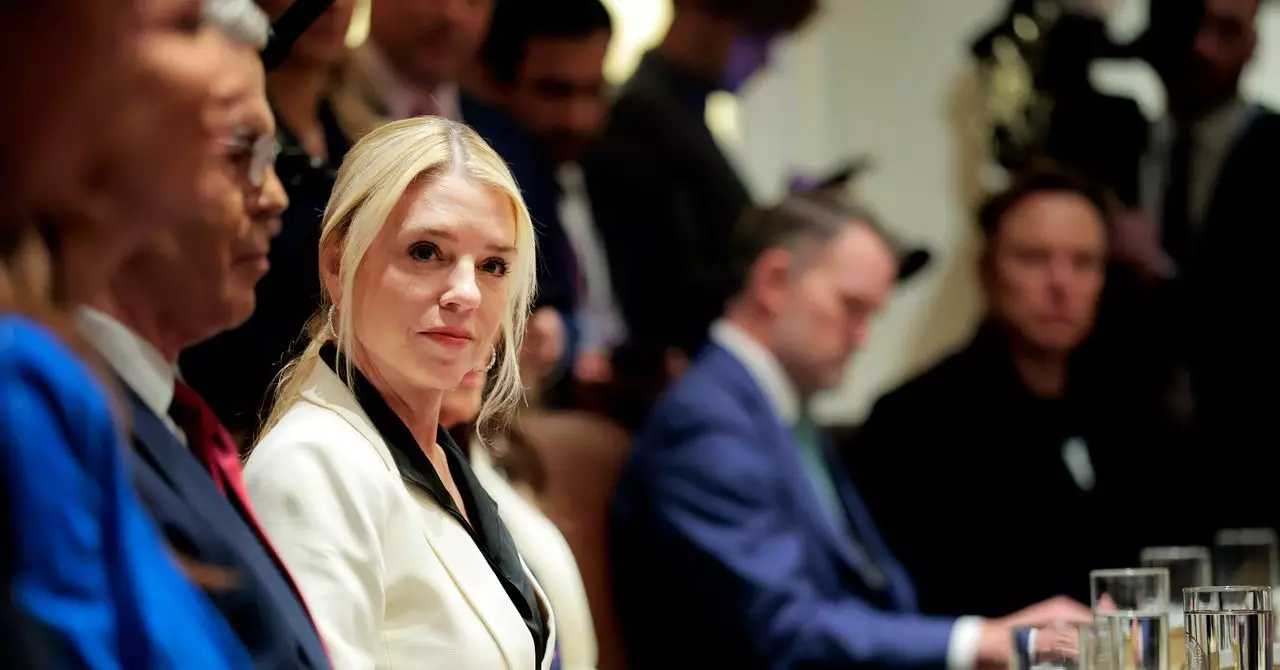In a striking development in New Mexico, Jamison Wagner, a 40-year-old man, has been charged with federal offenses related to two incendiary incidents that have captured national attention. The first incident pertains to an alleged arson at a Tesla showroom in Albuquerque and the second at the New Mexico Republican Party’s office. The acts of violence not only stand as individual crimes but also as alarming manifestations of the rising political tensions that seem to engulf the nation. The Department of Justice’s announcement, made on a recent Monday, underscores the seriousness with which these incidents are being treated and hints at the larger implications they carry in our politically charged atmosphere.
The nature of the charges against Wagner involves the federal offense of setting fire to a building or vehicle that is used in interstate commerce—an expansive definition that covers both the Tesla showroom, a site embedded in the intricacies of interstate sales, and the Republican Party office, which further complicates the political narrative. This duality of targeting both a commercial entity and a political organization highlights the increasingly blurred lines between business interests and partisan allegiance. The ramifications of such actions raise essential questions about personal accountability as well as the societal undercurrents that drive individuals to commit crimes rooted in political ideology.
Political Leaders Respond
Attorney General Pam Bondi’s remarks to the media following Wagner’s arrest reflect a clear zero-tolerance policy for such violent behaviors. Her statement—“Let this be the final lesson to those taking part in this ongoing wave of political violence”—is an outright declaration of intent to deter further acts of aggression. Bondi’s explicit warnings stem not just from the recent spike in politically motivated violence, but also from broader public concerns regarding the normalization of such conduct. This resonates especially in an era where political discourse often teeters on the brink of hostility.
In the backdrop of this announcement, there lies a deeper commentary on the current political landscape, with figures like Bondi, former President Trump, and other prominent Republicans framing arson and vandalism as acts of domestic terrorism. This labeling may serve to unify party lines around a common cause while simultaneously energizing a call for organized responses against perceived threats to their values and ideologies. As far-reaching as an action like this can be, the framing of such crimes within the context of terrorism could potentially lead to an escalation of resources and law enforcement efforts dedicated to identifying and prosecuting political dissenters.
Involvement of Federal Investigators
The involvement of an FBI agent specializing in international and domestic terrorism further underscores the significance of these cases. With increased scrutiny now being applied to protests and acts of vandalism, one must question the balance between public safety and the rights to free expression. There is an inherent challenge in law enforcement’s approach; while many protests remain peaceful, isolated violent incidents endanger the credibility and safety of the larger movements they stem from.
Interestingly, the ongoing investigations have led to significant legal ramifications for Wagner and others who share similar convictions. With the legal system now treating vandalism of properties like Tesla’s with heightened seriousness, it makes one wonder if this approach may ultimately serve as a deterrent or stimulate further unrest. Laws surrounding arson and politically motivated crimes are increasingly being dictated by current national sentiments, creating a precarious legal environment for individuals whose actions are perceived as politically charged.
Broader Implications for Society
The implications of these recent acts of arson ripple far beyond the physical destruction they cause. They signify a concerning trend where political messages take precedence over communal harmony and respect for property rights. This serves as a reminder of the power that political actors have over their constituents and the potential consequences that arise when voices escalate into violence.
The debates surrounding the allocation of law enforcement resources also engage broader societal questions about public safety and civil liberties. As calls for greater surveillance on those labeled as “domestic terrorists” become more commonplace, the discussion must include the effects of such categorization on the safety and rights of everyday citizens. With investigations like these drawing attention to the intersection of crime, politics, and commerce, society is left grappling with how to address these rising tensions while ensuring that civil liberties are preserved in this evolving political landscape.

